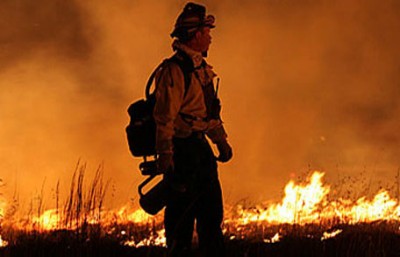NSU Newsroom
SharkBytes
Horizons
This version of NSU News has been archived as of February 28, 2019. To search through archived articles, visit nova.edu/search. To access the new version of NSU News, visit news.nova.edu.
This version of SharkBytes has been archived as of February 28, 2019. To search through archived articles, visit nova.edu/search. To access the new version of SharkBytes, visit sharkbytes.nova.edu.
Protect Yourself from Wildfire Smoke
Source: Centers for Disease Control and Prevention
Dry conditions in parts of the United States increase the potential for wildfires in or near wilderness areas. Stay alert for wildfire warnings and take action to protect yourself and your family from wildfire smoke.
When wildfires burn in your area, they produce smoke that may reach your community. Smoke from wildfires is a mixture of gases and fine particles from burning trees and other plant materials. Smoke can hurt your eyes, irritate your respiratory system, and worsen chronic heart and lung diseases.
Who is at greatest risk from wildfire smoke?
- People who have heart or lung diseases, like congestive heart failure, angina, chronic obstructive pulmonary disease (including emphysema), or asthma, are at higher risk from wildfire smoke. In general, people with these conditions are at higher risk of having health problems than healthy people.
- Older adults are more likely to be affected by smoke. This may be due to their increased risk of heart and lung diseases.
- Children are more likely to be affected by health threats from smoke. Children’s airways are still developing and they breathe more air per pound of body weight than adults. In addition, children often spend more time outdoors engaged in activity and play.
Take steps to decrease your risk from wildfire smoke.
- Check local air quality reports. Listen and watch for news or health warnings about smoke. Find out if your community provides reports about the U.S. Environmental Protection Agency’s Air Quality Index (AQI). In addition, pay attention to public health messages about taking safety measures.
- Consult local visibility guides if they are available. Some communities have monitors that measure the amount of particles that are in the air. In the western part of the United States, some states and communities provide guidelines to help people determine if there are high levels of particulates in the air by how far they can see.
- Keep indoor air as clean as possible if you are advised to stay indoors. Keep windows and doors closed. Run an air conditioner if you have one, but keep the fresh-air intake closed and the filter clean to prevent outdoor smoke from getting inside. If you do not have an air conditioner and it is too warm to stay inside with the windows closed, seek shelter in a designated evacuation center or away from the affected area.
- Avoid activities that increase indoor pollution. Burning candles, fireplaces, or gas stoves can increase indoor pollution. Vacuuming stirs up particles already inside your home, contributing to indoor pollution. Smoking also puts even more pollution into the air.
- Prevent wildfires from starting. Prepare, build, maintain and extinguish campfires safely. Comply with local regulations if you plan to burn trash or debris. Check with your local fire department to be sure the weather is safe enough for burning.
- Follow the advice of your doctor or other healthcare provider about medicines and about your respiratory management plan if you have asthma or another lung disease. Consider evacuating the area if you are having trouble breathing. Call for further advice if your symptoms worsen.
- Do not rely on dust masks for protection. Paper “comfort” or “dust” masks commonly found at hardware stores are designed to trap large particles, such as sawdust. These masks will not protect your lungs from the small particles found in wildfire smoke.
- Evacuate from the path of wildfires. Listen to the news to learn about current evacuation orders. Follow the instructions of local officials about when and where to evacuate. Take only essential items with you. Follow designated evacuation routes,others may be blocked, and expect heavy traffic.
